Our work
EDRi is the biggest European network defending rights and freedoms online. We work to to challenge private and state actors who abuse their power to control or manipulate the public. We do so by advocating for robust and enforced laws, informing and mobilising people, promoting a healthy and accountable technology market, and building a movement of organisations and individuals committed to digital rights and freedoms in a connected world.
Filter resources
-
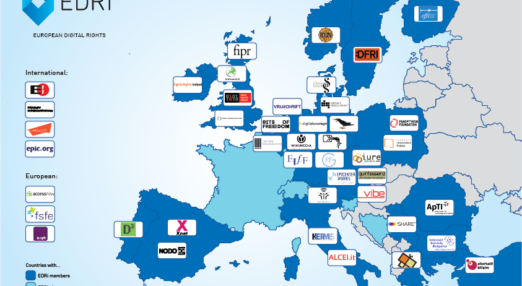
Looking back at EDRi’s victories in 2017
Our key successes of 2017 were the vote in a European Parliament Committee rejecting upload filters in the Copyright Directive proposal, EU Parliament's plenary vote supporting ePrivacy, and the Council of Europe welcoming of EDRi recommendations on the issue of cross-border access to data by law enforcement.
Read more
-

New Dutch law for intelligence services challenged in court
On 21 March 2018, the Dutch voted in an advisory referendum on the new Intelligence and Security Services Act. A majority of Dutch citizens voted against the law in its current form – a clear signal that the law is in urgent need of reconsideration. EDRi member Bits of Freedom has been fighting against important parts of this law since the first draft in 2015, so the outcome of the referendum comes as a positive news.
Read more
-
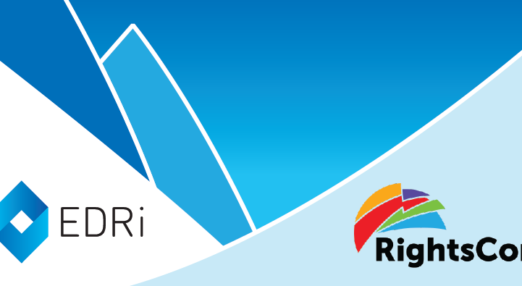
A guide to EDRi at RightsCon 2018
This year, three members of our Brussels office are attending RghtsCon in Toronto: Executive Director Joe McNamee, Senior Policy Adviser Maryant Fernández Pérez and Policy Intern Gemma Shields. The conference days are full of panels, meetings, informal get-togethers and fun activities. Here is our guide to the sessions moderated or attended by EDRi staff. Wednesday […]
Read more
-

Upload filters endanger freedom of expression
There are several examples of how automated upload filters are censoring human rights activists. As it has been proven, some filters used to classify content which is “offensive”, “extremist” or simply “inadequate for minors” have ended up censoring videos which tried to denounce injustices.
Read more
-

Bavarians protest against vastly extended police powers
A large anti-surveillance rally took place in Munich on 10 May 2018. 30 000 protesters showed their dismay about the Bavarian plans to reform the law on the tasks of the state’s police. Even the organisers were surprised by the scale of the demonstration – they had expected fewer than 10 000 people.
Read more
-
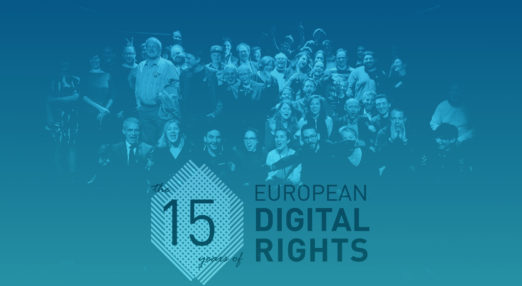
A glimpse of our 15th Anniversary
In 2018, European Digital Rights (EDRi) turned 15. We gathered to celebrate a decade and a half of existence of our network and its digital rights victories. The anniversary party took place on 12 April 2018 in Brussels. In between keynote presentations, a fireside chat with our founders, and a final word from our Executive Director, […]
Read more
-

Cambridge Analytica/Facebook: Will EU politicians back up their words with deeds?
On 14 May 2018, European Digital Rights (EDRi) wrote to the main political groups in the European Parliament calling for political self-regulation to help fight the problems of disinformation and political micro-targeting.
Read more
-
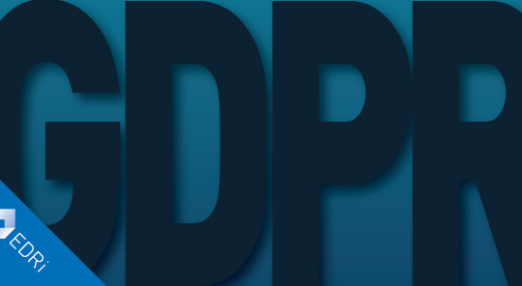
Are GDPR certification schemes the next data transfer disaster?
The General Data Protection Regulation (GDPR) encourages the establishment of data protection certification mechanisms, “in particular at [EU] level” (Art. 42(1)). But the GDPR also envisages various types of national schemes, and allows for the approval (“accreditation”) of schemes that are only very indirectly linked to the national data protection authority.
Read more
-

Big Brother Awards – tips and materials for organisers
In October 2018, we will celebrate 20th anniversary of the first Big Brother Awards (BBA) event in UK.
Read more
-

Welcoming new EDRi members: FSFE, Hermes Center, NOYB, and Xnet
We are proud to announce that the EDRi network has grown again, and we would like to warmly welcome the four new members: Free Software Foundation Europe (FSFE), Hermes Center for Transparency and Digital Human Rights, NOYB, and Xnet. European Digital Rights has now 39 members in 19 countries.
Read more
-
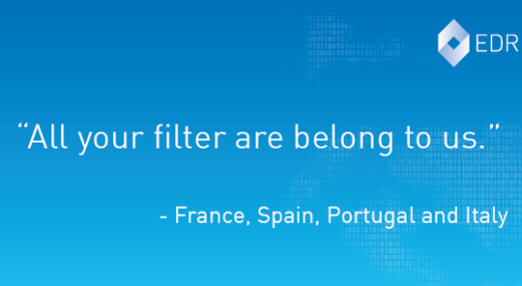
Leak: The “copyright troika” launches another censorship machine attack
On 27 April, a two-hour discussion was held on the Copyright Directive in the Council of the European Union.
Read more
-
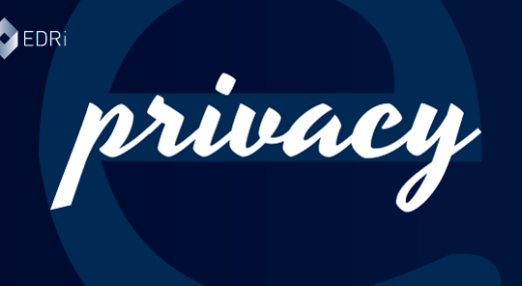
EU Member States fight to retain data retention in place despite CJEU rulings
EU Member States are still working to adopt their position on the ePrivacy Regulation proposed by the European Commission in January 2017. A number of draft compromise texts have been published by the Council Presidency before discussions in the Working Party on Telecommunications and Information Society (WP TELE).
Read more
